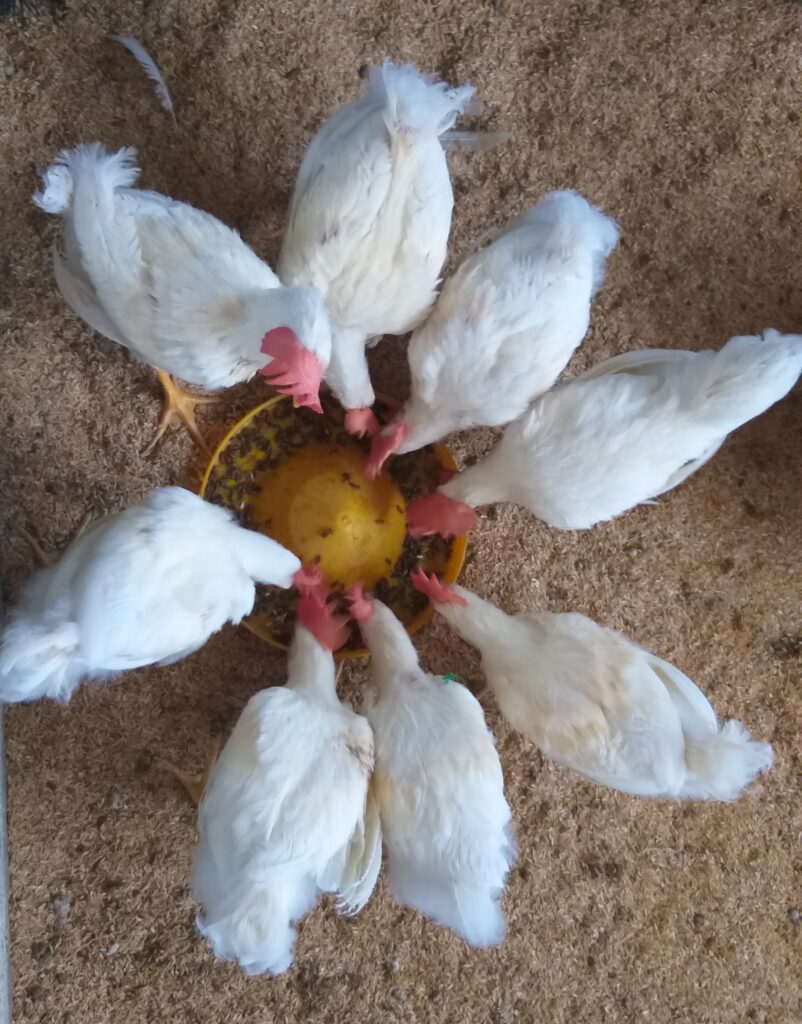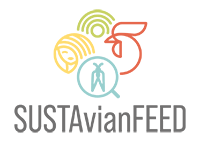By Valentina Bongiorno, Department of Veterinary Science, University of Torino (Italy)
In the realm of sustainable poultry farming, the SUSTAvianFEED project plays a pivotal role in demystifying innovative practices. While the use of insects in chicken feed is still perceived as unfamiliar by consumers, our mission is to shed light on this evolving field. This article focuses on the significance of utilizing dehydrated black soldier fly larvae, emphasizing their protein-rich composition and unique attributes. Often perceived as unfamiliar, these larvae emerge as a nutritional powerhouse, offering a high biological value feed ingredient for poultry production.

The University of Turin (Italy), key partner in the SUSTAvianFEED project, is currently conducting crucial studies on the potential of dehydrated larvae. Leveraging its academic expertise and dedication to research, the University plays a pivotal role in providing scientific insights and valuable contributions to understanding the capabilities of dehydrated black soldier fly larvae in the context of sustainable poultry farming. This established collaboration between academic research and practical project implementation is a cornerstone in the integrated approach of the SUSTAvianFEED project to promote sustainable agricultural practices and enhance the nutrition and well-being of poultry.
Unveiling the Potential: Dehydrated Black Soldier Fly Larvae in Sustainable Poultry Farming
The choice of dehydrated larvae aligns with logistical, stocking, and feed safety requirements, ensuring practical on-field distribution. While dehydrated larvae may lack the live ones’ motion capability, their unmatched palatability, flavor, and nutrient composition set them apart from any other inanimate environmental enrichment.
The SUSTAvianFEED project, focused on slow-growing breeds, specifically the Bianca di Saluzzo, a Slow Food Presidium raised by the University of Turin, plays a crucial role. This breed’s involvement not only supports population preservation but also provides insights into the effects of long-term larvae supplementation on collectively raised males: the synergy between the use of dehydrated larvae and the involvement of this specific breed enables the observation of the supplementation’s effects on males collectively raised over an extended period (5-6 months).
Welfare and Beyond
From a welfare standpoint, dehydrated larvae emerge as a strategic tool, stimulating natural behavior and fulfilling ethological needs. Rigorous tests measure fear, stress, and behavioral patterns, differentiating between supplemented and control groups. Various behavioral categories, including aggression and non-aggression, are studied, with specific subcategories defined. Monitoring ranging behavior considers pen occupation and external paddock exploration, with anticipated positive impacts on birds’ confidence and well-being.
Setting the pace for future insights and studies
The forthcoming research outcomes are poised to provide a valuable guideline applicable globally, aligning with project goals to enhance chicken production sustainability. By integrating alternative feed ingredients with the promotion of local strains, we lay a robust foundation for future studies and collaborations across research institutes and associations.




Leave a Reply
You must be logged in to post a comment.